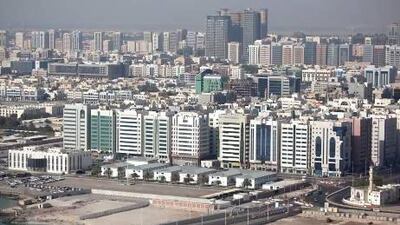ABU DHABI // Packed and ready to go, Abu Dhabi government employees are making final arrangements for the largest-scale move the country has seen.
For the past 11 months, human resources departments have been working closely with the Executive Council to help employees who have been living in other emirates to resettle in Abu Dhabi. The deadline for the move is September 1.
Ayesha Al Nuaimi, a human resources manager at an Abu Dhabi government entity, said there was little ambiguity with the decree.
“We just told them if they want to keep their housing [allowance], they need to move. If they insist on staying in another emirate, they will lose their housing,” she said. “We cannot give them housing if they do not live here.”
Her organisation has been providing employees with home options in Abu Dhabi and, once they have moved, transport costs.
They have also committed to providing employees with yearly maintenance in their new homes.
Emirates Foundation for Youth Development sends employees a newsletter with apartment listings, and has provided corporate rates for furniture moving and car rental.
Human resources departments have also been consulting with one another to compare ways to help employees.
Although some exceptional cases were still being studied by the Executive Council, human resources officers said come October, housing allowances would be eliminated from salaries for those who do not live in Abu Dhabi.
While many employees made swift arrangements to move, some are leaving matters to the last minute in the hope that their case would be looked into. Those with settled family in other emirates and those living in family-owned homes have been faced with the biggest dilemma.
Company officials have told employees bluntly that if they are unwilling to move they must face the consequences. Sultan Al Sammahi, a Federal National Council member from Fujairah, has not received any complaints from the public on the decree.
“Each emirate looks at its best interests and has the right to introduce such decisions,” he said.
“This will help rents and big projects and protect the economy. Abu Dhabi has always helped insure people and homes. It has the right to protect their projects which have cost millions.”
Although he believed the decree would mostly affect expatriates, the Dubai FNC member Rashad Bukhash said some locals living with their families in Dubai were also affected. He hoped exemptions would be given in the future.
Despite some initial hardship, human resources officers predicted that the move would improve employees’ productivity and put an end to illegal renting practices.
“It is a really good decision, it was studied well for the future of Abu Dhabi,” Ms Al Nuaimi said. “After the financial crisis Abu Dhabi prices went up so most people moved to Dubai in Barsha and those areas, leaving houses in Abu Dhabi empty.
“When the news first came out, people were shocked, they were not happy. Now they have been able to adjust and accept the decision.”
Brig Gen Hussain Al Harethi, head of Abu Dhabi traffic police, said the decree would help reduce the number of accidents.
“In general, any traffic movement can lead to an accident, any accident would not only cost the family dearly, but also the Government,” he said. “And on top of that, the environment suffers. This decree would lower the number of accidents and costs.”
He said that, along the main Dubai-Abu Dhabi road, most accidents happen between Seih Al Sedira and Ghantout and at Al Raha Beach.
“The highway is very busy overall, it is the only road connecting the two emirates,” he said. “We are trying as much as possible to find solutions to reduce traffic volume.”
Abdulilah Zineddin, a road safety specialist in Abu Dhabi, said the move could backfire in terms of road safety. “When there are fewer vehicles, people tend to speed more, which will lead to more crashes,” he said.
“Therefore, the Abu Dhabi Government shouldn’t simply reduce traffic volumes on the highways and expect a reduction in crashes, they also need to be more effective in enforcing speeds and educating the drivers.”

